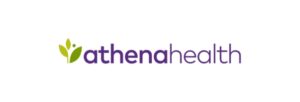Article 28 is a public health law for regulating and recognizing accreditation of public health care facilities so that the facilities are legally licensed and run. Article 28 provides that certain facilities are licensed to perform particular types of procedures which for other reasons might not lawfully be performed. Article 28 does not only relate to hospitals, however; it also covers surgical centres and nursing homes.
High standards of health care services for the state of New York is embodied in Article 28. It helps to establish that public healthcare facilities are operative and actual. Thus, accreditation with regards to the Article 28 process implies that a facility works in accordance with the tightest of standards. Coding and billing under Article 28 can be more complicated than even for a medical facility that has not yet met the designation.
The team from The Hired Billing Services has years of experience of handling a case with such big claims behind a healthcare provider, so they have the required knowledge and experience to take on these claims when they are filed on behalf of the healthcare facility.
However, because the services healthcare professionals who are accredited under Article 28 provide are more expensive, to some degree, this is because they have to be willing to pay the bills to ensure that high standards of care are met. As Article 28 facilities provide a higher cost of care, the carriers are very interested in controlling those costs, so more scrutiny is put on them.
If your patient was injured in a car accident, your healthcare facility bill should be paid by the automobile insurance carrier. Once upon a time, New York’s No- Fault Insurance Law was created to ensure that car accident victims didn’t depend on who was at fault, for quality medical care. Just for this compensation of your No-FAULT bills, you will have to file a No-FAULT claim with the patient’s insurance company. If you file a claim, your facility is entitled to be reimbursed for all “reasonable and necessary” treatment.
However, in some cases the insurance companies are reluctant to pay out these bills. However, there can be many reasons why they will deny your No-Fault claim and the most common reasons here are as follows below.
The most common denial is that the insurer simply says the treatment provided by your facility was not “reasonable and necessary” and therefore, it is not covered under the No-Fault law. The insurers will collaborate with an independent physician to generate a peer review-based medical denial claiming the care was unnecessary.
This doctor never even speaks with or sees the patient, and he only reviews their medical records before reaching a conclusion. Sometimes the insurance company’s doctor will be negligent when deciding whether or not your facility delivered appropriate healthcare to a No-Fault patient. Over years we have been successful resisting denials based on expert opinion with multiple remedies.
Like as if you were seeing a peer-review doctor and were deemed your care was not medically necessary, similar to an IME, an Independent Medical Exam specifically is another way in which insurance companies will “verify” a patient’s condition before they will pay your claims you may decide to submit down the road.
The examining physician might rule that the patient’s recovery is complete or minimize and even ignore certain injuries. It is then up to you to mount a rebuttal based on this opinion, and insurance companies will deny either part or entire medical facility bills while referring back to the opinion.
In order to get reimbursed, you’ll have to supply the insurance company with detailed documentation of the care that was given. If you do not have such documentation, the insurer will likely issue you a request for claim verification. Requests for verification cannot be ignored, even when they are not justified and even if you have already submitted the requested materials; you at least have to respond to tell them you’ve already provided the materials. Refusal to answer verification requests, even if far-fetched, will most likely result in a defense that will be upheld at a No-Fault arbitration or even lawsuit and you will no longer be able to collect on your claim.
Some tips are that we recommend you ensure that every one of your facility’s claims includes every required and supporting documentation as well.
Value of Claims Processed
Accounts Receivable Days
Turn Around Time (TAT)
Customer Retention
Number of Claims Processed
First Pass Clean Claims Rate
Revenue Improvement
Reduction in A/R
Our medical billing specialists know the workarounds of all the EHRs. We help you submit clean claims no matter which EHR you use.







Unlock your revenue potential with our 24/7 medical billing services.

Hire experts proficient in your EHR to enhance the billing process.

Save $2,000 with our free Billing Audit. Gain insights from 21 KPIs to boost cash flow.
Get in touch with us!
5550 Glades Road Suite 500-1047 Boca Raton FL 33431
Copyright 2025 Hired Billing Support LLC. All Rights Reserved.